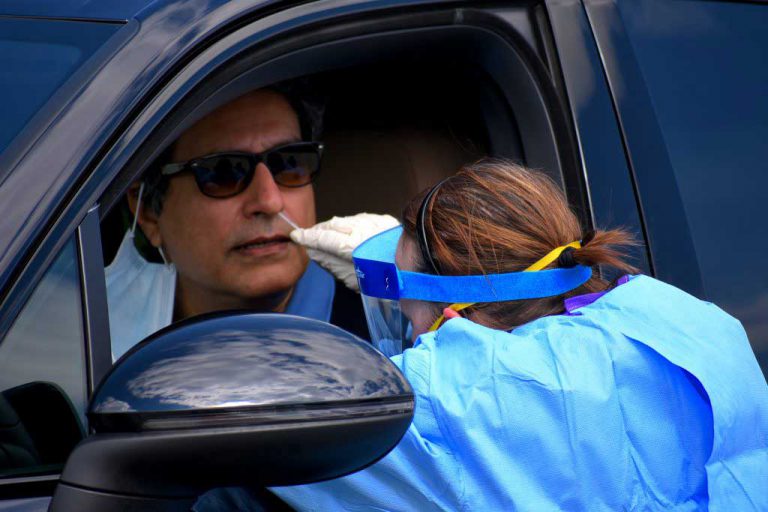URBANA – The COVID-19 pandemic has shone a spotlight on long-standing racial disparities, when it comes to access to health care and other resources.
People of color, who are overrepresented among essential workers and in low-income communities, have been disproportionately hurt by the virus and are among those in need of better access to coronavirus testing and prevention.
But they are also more likely to be hampered by problems with inadequate housing, medical issues, transportation, high-risk occupations and other barriers, says Liliane Windsor, associate professor of social work at the University of Illinois at Urbana-Champaign.

Windsor is teaming up with Ellen Benoit of the North Jersey Community Research Initiative to study whether strategies known to be effective at engaging high-risk populations in HIV/AIDS testing and treatment can be successfully adapted to reaching marginalized, hard-to-reach populations during the coronavirus pandemic.
One of those strategies, known as navigation services, involves identifying the barriers people face when it comes to accessing testing and treatment — and providing personalized support to address them.
“So if it is transportation, they will literally send a car to pick the person up and bring them to the clinic to be tested,” Windsor says. “They will schedule appointments for people with medical doctors for potential health problems that they have.”
The strategy can also involve addressing housing and employment concerns by linking people to resources in the community. Outreach workers also provide information — in English or Spanish — about COVID-19, aimed at dispelling myths and empowering people to make decisions for their health based on trustworthy information.
Another critical component of the navigation services approach is a technique known as motivational interviewing, which focuses on listening, empathy and addressing people’s defense mechanisms.
The researchers will explore whether such an approach can help address whatever resistance people may have to COVID-19 testing, treatment and other interventions, ultimately leading to better adherence to public health guidance, Windsor says.
Many of these hands-on strategies are resource-intensive, so Windsor says they will also explore whether less-involved strategies — like providing people with information and generalized advice — can be effective as well.
“It’s a balance between effectiveness and efficiency,” she says. “We want to do it well, but we also want to be conservative because we have limited resources.”
The study will also explore factors that contribute to adherence — or lack thereof — to COVID-19 mitigation strategies, including social distancing, handwashing and self-isolating or quarantining.
The study is funded by the National Institutes of Health and will involve more than 580 residents of Essex County, New Jersey.
Christine Herman is a reporter at Illinois Public Media. Follow her on Twitter: @CTHerman

